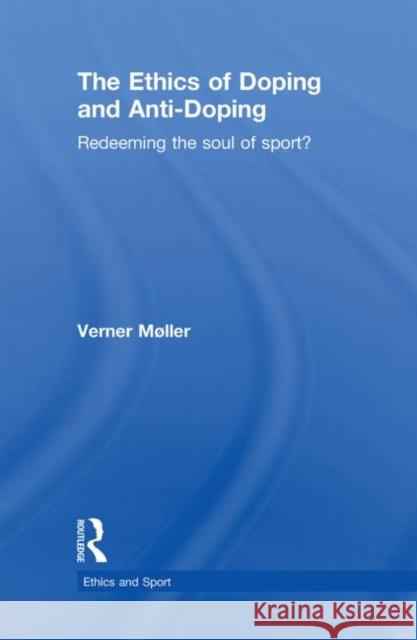The Ethics of Doping and Anti-Doping: Redeeming the Soul of Sport? » książka
The Ethics of Doping and Anti-Doping: Redeeming the Soul of Sport?
ISBN-13: 9780415484657 / Angielski / Twarda / 2009 / 168 str.
The Ethics of Doping and Anti-Doping: Redeeming the Soul of Sport?
ISBN-13: 9780415484657 / Angielski / Twarda / 2009 / 168 str.
(netto: 670,84 VAT: 5%)
Najniższa cena z 30 dni: 654,86
ok. 22 dni roboczych
Dostawa w 2026 r.
Darmowa dostawa!
With every positive drugs test the credibility and veracity of modern elite sport is diminished. In this radical and provocative critique of current anti-doping policy and practice, Verner Moller argues that the fight against doping - promoted as an initiative to cleanse sport of cheats - is at heart nothing less than a battle to save sport from itself, located on the fault-line between the will to purity and the will to win. Drawing on extensive and detailed case studies of doping in sport, and using a highly original blend of conceptual ideas from philosophy and sociology, Moller strongly criticises current anti-doping regimes and challenges our commonly held ideas about the nature of sport and the risks posed by drugs to health and fair play. He argues forcefully that we must understand the precarious position of the athlete and that only by containing coaches, doctors and drug companies within the anti-doping regime can we hope to ever make progress on this most important issue. Written in a lively and engaging style, and skilfully blending empirical case studies with cutting edge theory, this book represents an important statement on the nature of sport, morality and modernity. It is important reading for all serious students and scholars of the ethics, sociology and politics of sport.
With every positive drugs test the credibility and veracity of modern elite sport is diminished. In this radical and provocative critique of current anti-doping policy and practice, Verner Møller argues that the fight against doping – promoted as an initiative to cleanse sport of cheats – is at heart nothing less than a battle to save sport from itself, located on the fault-line between the will to purity and the will to win.
Drawing on extensive and detailed case studies of doping in sport, and using a highly original blend of conceptual ideas from philosophy and sociology, Møller strongly criticises current anti-doping regimes and challenges our commonly held ideas about the nature of sport and the risks posed by drugs to health and fair play. He argues forcefully that we must understand the precarious position of the athlete and that only by containing coaches, doctors and drug companies within the anti-doping regime can we hope to ever make progress on this most important issue.
Written in a lively and engaging style, and skilfully blending empirical case studies with cutting edge theory, this book represents an important statement on the nature of sport, morality and modernity. It is important reading for all serious students and scholars of the ethics, sociology and politics of sport.











